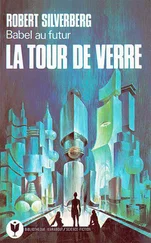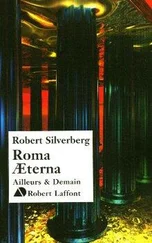Tower of Glass
by Robert Silverberg
Look, Simeon Krug wanted to say, a billion years ago there wasn’t even any man, there was only a fish. A slippery thing with gills and scales and little round eyes. He lived in the ocean, and the ocean was like a jail, and the air was like a roof on top of the jail. Nobody could go through the roof. You’ll die if you go through, everybody said, and there was this other fish, he went through, and he died. And there was this other fish, and he went through, and he died. But there was another fish, and he went through, and it was like his brain was on fire, and his gills were blazing, and the air was drowning him, and the sun scorched his eyes, and he was lying there in the mud, waiting to die, and he didn’t die. He crawled back down the beach and went into the water and said, Look, there’s a whole other world up there. And he went up there again, and stayed for maybe two days, and then he died. And other fishes wondered about that world. And crawled up onto the muddy shore. And stayed. And taught themselves how to breathe the air. And taught themselves how to stand up, how to walk around, how to live with the sunlight in their eyes. And they turned into lizards, dinosaurs, whatever they became, and they walked around for millions of years, and they started to get up on their hind legs, and they used their hands to grab things, and they turned into apes, and the apes got smarter and became men. And all the time some of them, a few, anyway, kept looking for new worlds. You say to them, Let’s go back into the ocean, let’s be fishes again, it’s easier that way. And maybe half of them are ready to do it, more than half, maybe, but there are always some who say, Don’t be crazy. We can’t be fishes any more. We’re men. And so they don’t go back. They keep climbing up.
September 20, 2218
Simeon Krug’s tower now rises 100 meters above the gray-brown tundra of the Canadian Arctic, west of Hudson Bay. At present the tower is merely a glassy stump, hollow, open-topped, sealed from the elements only by a repellor field hovering shieldlike just a few meters above the current work level. Around the unfinished structure cluster the android work crews, thousands of synthetic humans, crimson-skinned, who toil to affix glass blocks to scooprods and send the rods climbing to the summit, where other androids put the blocks in place. Krug has his androids working three shifts around the clock; when it gets dark, the construction site is lit by millions of reflector plates strung across the sky at a height of one kilometer and powered by the little million-kilowatt fusion generator at the north end of the site.
From the tower’s huge octagonal base radiate wide silvery strips of refrigeration tape, embedded fifty centimeters deep in the frozen carpet of soil, roots, moss, and lichens that is the tundra. The tapes stretch several kilometers in each direction. Their helium-II diffusion cells soak up the heat generated by the androids and vehicles used in building the tower. If the tapes were not there, the tundra would soon be transformed by the energy-output of construction into a lake of mud; the colossal tower’s foundation-caissons would lose their grip, and the great building would tilt and tumble like a felled titan. The tapes keep the tundra icy, firm, capable of bearing the immense burden that Simeon Krug is now imposing on it.
Around the tower, subsidiary buildings are centered on a thousand-meter radius. To the west of the site is the master control center. To the east is the laboratory where the tachyon-beam ultrawave communications equipment is being fabricated: a small pink dome which usually contains ten or a dozen technicians patiently assembling the devices with which Krug hopes to send messages to the stars. North of the site is a clutter of miscellaneous service buildings. On the south side is the bank of transmat cubicles that link this remote region to the civilized world. People and androids flow constantly in and out of the transmats, arriving from New York or Nairobi or Novosibirsk, departing for Sydney or San Francisco or Shanghai.
Krug himself invariably visits the site at least once a day — alone, or with his son Manuel, or with one of his women, or with some fellow industrialist. Customarily he confers with Thor Watchman, his android foreman; he rides a scooprod to the top of the tower and peers into it; he checks the progress in the tachyon-beam lab; he talks to a few of the workmen, by way of inspiring loftier effort. Generally Krug spends no more than fifteen minutes at the tower. Then he steps back into the transmat, and instantaneously is hurled to the business that awaits him elsewhere.
Today he has brought a fairly large party to celebrate the attainment of the 100-meter level. Krug stands near what will be the tower’s western entrance. He is a stocky man of sixty, deeply tanned, heavy-chested and short-legged, with narrow-set, glossy eyes and a seamed nose. There is a peasant strength about him. His contempt for all cosmetic editing of the body is shown by his coarse features, his shaggy brows, his thinning hair: he is practically bald, and will do nothing about it. Freckles show through the black strands that cross his scalp. He is worth several billion dollars fissionable, though he dresses plainly and wears no jewelry; only the infinite authority of his stance and expression indicates the extent of his wealth.
Nearby is his son and heir, Manuel, his only child, tall, slender, almost foppishly handsome, elegantly dressed in a loose green robe, high buckskins, an auburn sash. He affects earlobe plugs and a mirror-plate in his forehead. He will shortly be thirty. His movements are graceful, but he seems fidgety when in repose.
The android Thor Watchman stands between father and son. He is as tall as Manuel, as powerfully built as the elder Krug. His face is that of a standard alpha-class android, with a lean Caucasoid nose, thin lips, strong chin, sharp cheekbones: an idealized face, a plastic face. Yet he has impressed a surprising individuality on that face from within. No one who sees Thor Watchman will mistake him the next time for some other android. A certain gathering of the brows, a certain tension of the lips, a certain hunching of the shoulders, mark him as an android of strength and purpose. He wears an openwork lace doublet; he is indifferent to the biting cold at the site, and his skin, the deep red, faintly waxy skin of an android, is visible in many places.
There are seven others in the group that has emerged from the transmat. They are:
Clissa, the wife of Manuel Krug.
Quenelle, a woman younger than Manuel, who is his father’s current companion.
Leon Spaulding, Krug’s private secretary, an ectogene.
Niccolт Vargas, at whose observatory in Antarctica the first faint signals from an extrasolar civilization were detected.
Justin Maledetto, the architect of Krug’s tower.
Senator Henry Fearon of Wyoming, a leading Witherer.
Thomas Buckleman of the Chase/King banking group.
“Into the scooprods, everybody!” Krug bellows. “Here — here — you — you — up to the top!”
“How high will it be when it’s finished?” Quenelle asks.
“1500 meters,” Krug replies. “A tremendous tower of glass full of machinery that nobody can understand. And then we’ll turn it on. And then we’ll talk to the stars.”
In the beginning there was Krug, and He said, Let there be Vats, and there were Vats.
And Krug looked upon the Vats and found them good.
And Krug said, Let there be high-energy nucleotides in the Vats. And the nucleotides were poured, and Krug mixed them until they were bonded one to another.
Читать дальше












